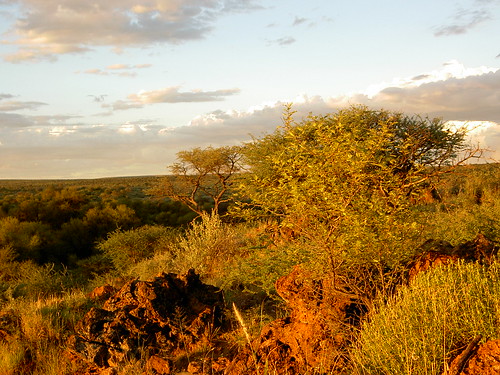Difference between revisions of "Adopting from Namibia"
(→Hague Convention Information) |
|||
| Line 28: | Line 28: | ||
=Hague Convention Information= | =Hague Convention Information= | ||
| + | Namibia is not party to the Hague Convention on Protection of Children and Co-operation in Respect of Intercountry Adoption (the Hague Adoption Convention). Intercountry adoptions of children from non-Hague countries are processed in accordance with [http://www.ecfr.gov/cgi-bin/text-idx?c=ecfr&rgn=div5&view=text&node=8:1.0.1.2.8&idno=8#8:1.0.1.2.8.1.1.3 8 Code of Federal Regulations, Section 204.3] as it relates to orphans as defined under the [http://www.uscis.gov/iframe/ilink/docView/SLB/HTML/SLB/0-0-0-1/0-0-0-29/0-0-0-101/0-0-0-434.html Immigration and Nationality Act, Section 101(b)(1)(F)]. | ||
| + | |||
| + | |||
| + | A 2007 Namibian High Court ruling makes intercountry adoption possible. However, there is no specific law governing adoptions in Namibia. Intercountry adoption is covered by the Ministry of Gender Equality and Child Welfare pursuant to The Children’s Act of 1960. Currently, it is very difficult for non-resident foreigners to [[adopt]]. In general, only foreigners residing in Namibia have been allowed to [[adopt]] Namibian children. Further, the list of prospective [[Adoptive Parents|adoptive parents]] for Namibia exceeds the list of children eligible for intercountry adoption, making adoption by non-resident foreigners an even more difficult and lengthy process. | ||
| + | |||
| + | |||
| + | Intercountry adoption in Namibia is legal but bureaucratically complex. At a minimum, it involves approval from the Ministry of Gender Equality and Child Welfare and a final court order recognizing the adoption. Close coordination with the Ministry of Home Affairs and Immigration is also required. Each intercountry adoption in Namibia is handled according to its unique circumstances; specific steps, and the order in which they occur, may vary from case to case. | ||
| + | |||
| + | |||
| + | '''U.S. IMMIGRATION REQUIREMENTS FOR INTERCOUNTRY ADOPTIONS''' | ||
| + | |||
| + | |||
| + | To bring an [[adopted]] child to the United States from Namibia, you must meet [http://adoption.state.gov/adoption_process/who_can_adopt/eligibility.php eligibility and suitability requirements]. The U.S. Department of Homeland Security, U.S. Citizenship and Immigration Services (USCIS), determines [http://adoption.state.gov/adoption_process/who.php Who Can Adopt] under U.S. immigration law. | ||
| + | |||
| + | |||
| + | Additionally, a child must meet the [http://www.uscis.gov/tools/glossary/orphan definition of orphan] under U.S. law in order to be eligible to immigrate to the United States on an IR-3 or IR-4 immigrant visa. | ||
=Who Can Adopt= | =Who Can Adopt= | ||
Revision as of 04:25, 6 April 2014
Contents
Hague Convention Information
Namibia is not party to the Hague Convention on Protection of Children and Co-operation in Respect of Intercountry Adoption (the Hague Adoption Convention). Intercountry adoptions of children from non-Hague countries are processed in accordance with 8 Code of Federal Regulations, Section 204.3 as it relates to orphans as defined under the Immigration and Nationality Act, Section 101(b)(1)(F).
A 2007 Namibian High Court ruling makes intercountry adoption possible. However, there is no specific law governing adoptions in Namibia. Intercountry adoption is covered by the Ministry of Gender Equality and Child Welfare pursuant to The Children’s Act of 1960. Currently, it is very difficult for non-resident foreigners to adopt. In general, only foreigners residing in Namibia have been allowed to adopt Namibian children. Further, the list of prospective adoptive parents for Namibia exceeds the list of children eligible for intercountry adoption, making adoption by non-resident foreigners an even more difficult and lengthy process.
Intercountry adoption in Namibia is legal but bureaucratically complex. At a minimum, it involves approval from the Ministry of Gender Equality and Child Welfare and a final court order recognizing the adoption. Close coordination with the Ministry of Home Affairs and Immigration is also required. Each intercountry adoption in Namibia is handled according to its unique circumstances; specific steps, and the order in which they occur, may vary from case to case.
U.S. IMMIGRATION REQUIREMENTS FOR INTERCOUNTRY ADOPTIONS
To bring an adopted child to the United States from Namibia, you must meet eligibility and suitability requirements. The U.S. Department of Homeland Security, U.S. Citizenship and Immigration Services (USCIS), determines Who Can Adopt under U.S. immigration law.
Additionally, a child must meet the definition of orphan under U.S. law in order to be eligible to immigrate to the United States on an IR-3 or IR-4 immigrant visa.
Who Can Adopt
Residency
Age of Adopting Parents
Marriage
Income
Other
Who Can Be Adopted
How to Adopt
Adoption Authority
The Process
Traveling Abroad
Applying for Your U.S. Passport
A valid U.S. passport is required to enter and leave Namibia. Only the U.S. Department of State has the authority to grant, issue, or verify U.S. passports. Getting or renewing a passport is easy. The Passport Application Wizard will help you determine which passport form you need, help you to complete the form online, estimate your payment, and generate the form for you to print-all in one place.
Obtaining Your Visa
In addition to a U.S. passport, you also need to obtain a visa. A visa is an official document issued by a foreign country that formally allows you to visit. Where required, visas are attached to your passport and allow you to enter a foreign nation. To find information about obtaining a visa for Namibia, see the Department of State's Country Specific Information.
Staying Safe on Your Trip
Before you travel, it's always a good practice to investigate the local conditions, laws, political landscape, and culture of the country. The State Department is a good place to start. The Department of State provides Country Specific Information for every country of the world about various issues, including the health conditions, crime, unusual currency or entry requirements, and any areas of instability.
Staying in Touch on Your Trip
When traveling during the adoption process, we encourage you to register your trip with the Department of State. Travel registration makes it possible to contact you if necessary. Whether there's a family emergency in the United States, or a crisis in Namibia, registration assists the U.S. Embassy or Consulate in reaching you. Registration is free and can be done online.
After Adoption
SOURCE
Intercountry Adoption, Bureau of Consular Affairs. U.S. Department of State Country Information










